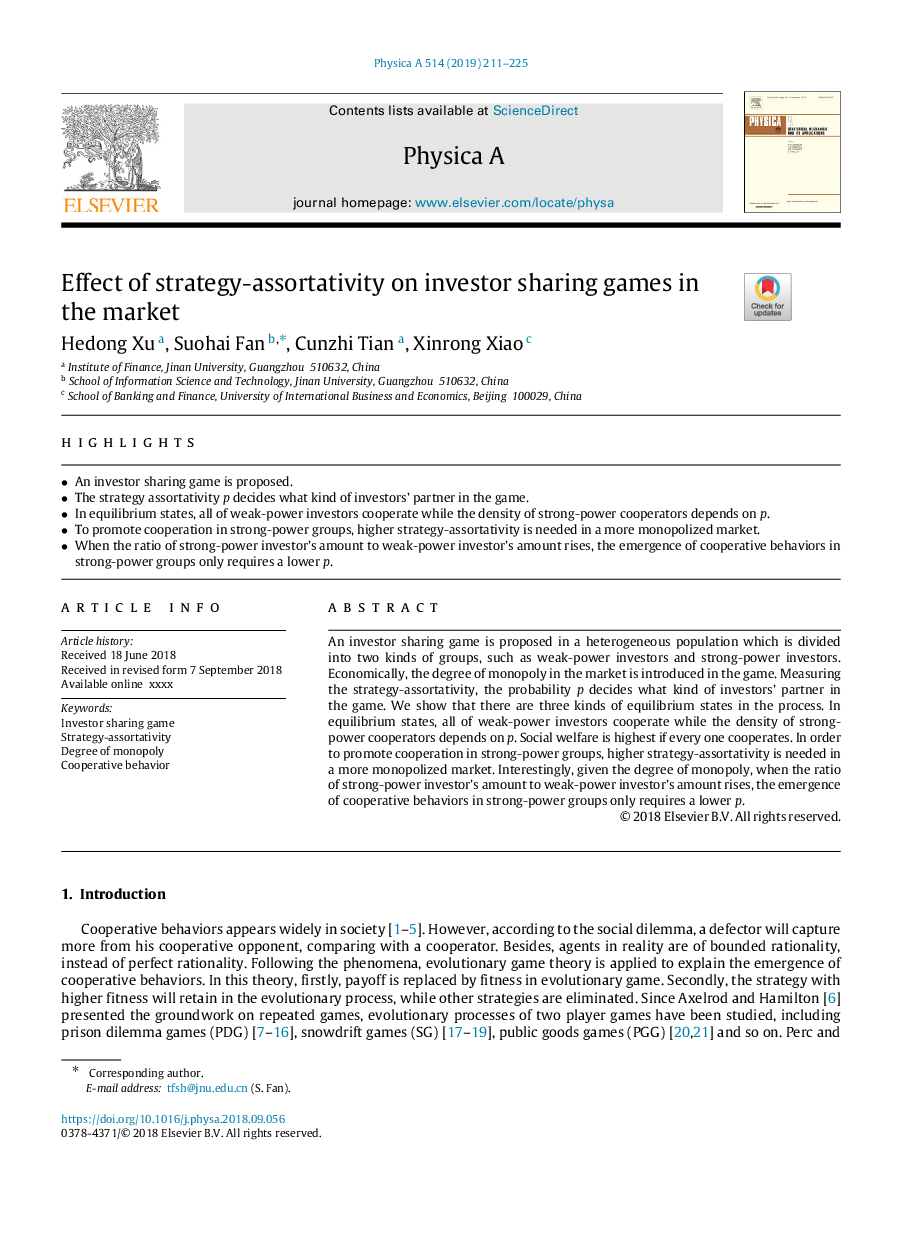| Article ID | Journal | Published Year | Pages | File Type |
|---|---|---|---|---|
| 10482363 | Physica A: Statistical Mechanics and its Applications | 2019 | 15 Pages |
Abstract
An investor sharing game is proposed in a heterogeneous population which is divided into two kinds of groups, such as weak-power investors and strong-power investors. Economically, the degree of monopoly in the market is introduced in the game. Measuring the strategy-assortativity, the probability p decides what kind of investors' partner in the game. We show that there are three kinds of equilibrium states in the process. In equilibrium states, all of weak-power investors cooperate while the density of strong-power cooperators depends on p. Social welfare is highest if every one cooperates. In order to promote cooperation in strong-power groups, higher strategy-assortativity is needed in a more monopolized market. Interestingly, given the degree of monopoly, when the ratio of strong-power investor's amount to weak-power investor's amount rises, the emergence of cooperative behaviors in strong-power groups only requires a lower p.
Keywords
Related Topics
Physical Sciences and Engineering
Mathematics
Mathematical Physics
Authors
Hedong Xu, Suohai Fan, Cunzhi Tian, Xinrong Xiao,
